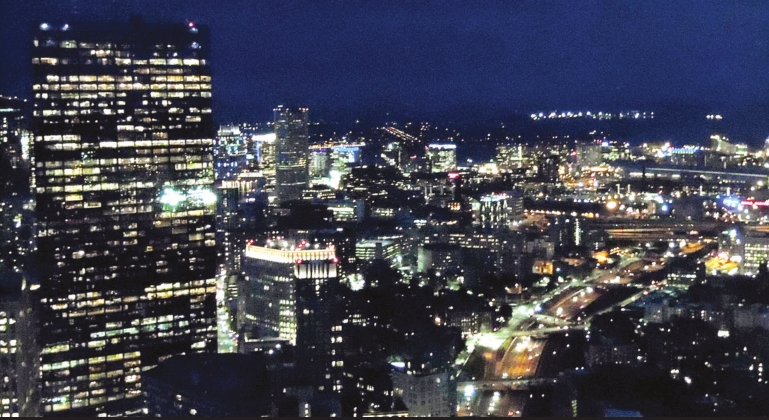
Luxury condo prices are soaring even higher than the rest of the city’s housing as robust demand meets limited supply with no end in sight.
The asking price of Boston’s most expensive condominiums is edging towards $5,000 per square foot, an unimaginable price in years past that now seems unlikely to be the market’s peak.
This year is shaping up to be a record year for housing prices across the board, and high-end products are seeing a disproportionate share of that increase as wealthy buyers snap up choice property regardless of price.
Kevin Ahearn, CEO of
Douglas Elliman’s Boston branch, confirmed the sky-high rates. He said
that the rise was present in both new construction and old buildings
returning to market.
The
highest price he’s seen yet is Pier 4 in the Seaport, whose Penthouse D
garnered $4,684 per square foot. Older buildings aren’t quite that
pricey, but The Mandarin on Boylston Street sold two large units for
around $3,500 per square foot earlier this year.
“What’s
happening is that there’s dispersion in the marketplace. The top end is
pulling away from the average price point, giving us this tremendous
range,” he said. “The top is obviously very wealthy people that can just
buy whatever they want to buy. And it’s not just one or two new
buildings, it’s new development plus premier resale buildings.”
The
latest data from Douglas Elliman shows that average condo prices have
rebounded to an all-time high of $1,333,415 after two years of slight
contractions during the pandemic. The median is lower at a nevertheless
record-setting $937,000.
That
relationship indicates that prices skew upward, and their growth rates
compared to the same statistics from previous years show their upward
skew is growing over time.
The
city’s most expensive condos set themselves apart with a variety of
factors, including views of the city or waterfront, unique in-building
amenities and included parking spots. Location might be the most
important element, and one of the most restricted in Boston’s crowded
urban neighborhoods.
“There’s
a very limited number of locations for premium sites, that’s part of
why prices get pushed up. Boston is land-poor, it doesn’t have a lot of
space to grow in. It has restrictions on height, on setbacks on the
water. This combination of features means that opportunities for new
development and the choices for buyer groups in these premium spots is
dwindling, not expanding,” said Ahearn.
Those
sky-high prices are in turn supported by a class of buyers that can
afford to spend small and not-so-small fortunes on a downtown condo.
None of the factors on the supply or demand side of the equation are
likely to be disappearing anytime soon.
“The
local economy is cooking, I just saw recently that Boston was third in
the U.S. for preference of location if you’re a foreign business,” said
Ahearn. “It just keeps going with the strong characteristics and
features of the local market. I don’t see anything slowing it down.”